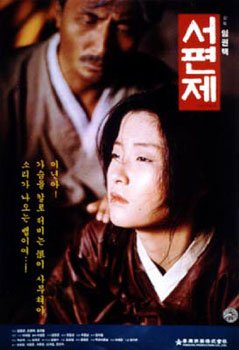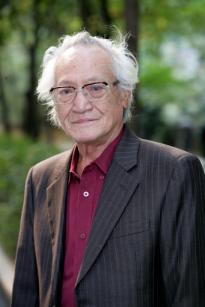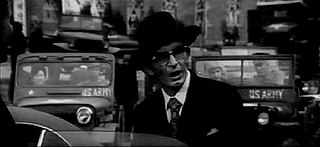Related Research Articles

The Korean War was fought between North Korea and South Korea from 1950 to 1953. The war began on 25 June 1950 when North Korea invaded South Korea following clashes along the border and rebellions in South Korea. North Korea was supported by China and the Soviet Union while South Korea was supported by the United States and allied countries. The fighting ended with an armistice on 27 July 1953.

Zhou Enlai was a Chinese statesman and military officer who served as the first premier of the People's Republic of China from 1 October 1949 until his death on 8 January 1976. Zhou served under Chairman Mao Zedong and helped the Communist Party rise to power, later helping consolidate its control, form its foreign policy, and develop the Chinese economy.

Gim Yu-sin was a Korean military general and politician in 7th-century Silla. He led the unification of the Korean Peninsula by Silla under the reign of King Muyeol and King Munmu. He is said to have been the great-grandchild of King Guhae of Geumgwan Gaya, the last ruler of the Geumgwan Gaya state. This would have given him a very high position in the Silla bone rank system, which governed the political and military status that a person could attain.

Throughout the ages, there have been various popular religious traditions practiced on the Korean peninsula. The oldest indigenous religion of Korea is the Korean folk religion, which has been passed down from prehistory to the present. Buddhism was introduced to Korea from China during the Three Kingdoms era in the fourth century, and the religion pervaded the culture until the Joseon Dynasty, when Confucianism was established as the state philosophy. During the Late Joseon Dynasty, in the 19th century, Christianity began to gain a foothold in Korea. While both Christianity and Buddhism would play important roles in the resistance to the Japanese occupation of Korea in the first half of the 20th century, only about 4% of Koreans were members of a religious organization in 1940.

Seopyeonje is a 1993 South Korean musical drama film directed by Im Kwon-taek, based on the novel of the same name by Yi Chong-jun. It tells the story of a family of traditional Korean pansori singers trying to make a living in the modern world. It is the first South Korean film to draw over one million audiences and has significant influence in reviving popular interest in traditional Korean culture and pansori.

The Ministry of Unification is an executive department of the South Korean government aimed at promoting Korean reunification. It was first established in 1969 as the National Unification Board, under the rule of Park Chung-hee. It gained its current status in 1998 and has played a major role in promoting inter-Korean dialogues, exchanges and cooperation.
The six martyred ministers or Sayuksin were six ministers of the Joseon Dynasty who were executed by King Sejo in 1456 for plotting to assassinate him and restore the former king Danjong to the throne.

Yu Hyun-mok was a South Korean film director. Born in Sariwon, Hwanghae, Korea, he made his film debut in 1956 with Gyocharo (Crossroads). According to the website koreanfilm.org, his 1961 film Obaltan "has repeatedly been voted the best Korean film of all time in local critics' polls." Yu attended the San Francisco International Film Festival in 1963, where Variety called Obaltan a "remarkable film", and praised Yu's "[b]rilliantly detailed camera" and the film's "probing sympathy and rich characterizations."

War Trash is a novel by the Chinese author Ha Jin, who has long lived in the United States and who writes in English. It takes the form of a memoir written by the fictional character Yu Yuan, a man who eventually becomes a soldier in the Chinese People's Volunteer Army and who is sent to Korea to fight on the Communist side in the Korean War. The majority of the "memoir" is devoted to describing this experience, especially after Yu Yuan is captured by United Nations forces and imprisoned as a POW. The novel captured the PEN/Faulkner Award and was a finalist for the Pulitzer Prize.

Unsung Heroes, also known as Unknown Heroes or more literally as Nameless Heroes, is a North Korean war drama mini-series about a spy in Seoul during the Korean War. Over twenty hours long, it was filmed and released in multiple parts between 1978 and 1981. It was the recipient of the Kim Il-sung Medal.
The Independence Association was founded through the initiative of Philip Jaisohn on July 2, 1896. At its founding it was recognized by the Korean Ministry of Foreign Affairs. Despite some remarkable achievements, by the late nineteenth century Korea found itself wholly unable to resist, or even properly comprehend the encroachments of foreign powers. Japan's victory in the First Sino-Japanese War had both removed the Chinese from the peninsula and exacted an acknowledgment of Korean independence, but the country's independence was fragile, with Japan, Russia, and other powers vying for influence. The group was founded by reform-minded citizens, and worked to strengthen Korean independence, promote national self-strengthening, create a public sphere, and advocate democratic participation in government decisions. The club published a newspaper, Tongnip Sinmun, and worked to create symbols of Korean independence. It supported public education, journalism, and language reform. Its political program for reforming the government into a constitutional monarchy brought it into conflict with the Emperor and conservatives in the court, and the club was ordered to disband in December 1898.

Parliamentary elections were held in North Korea on 25 August 1948 to elect the members of the 1st Supreme People's Assembly. Organised by the People's Committee of North Korea, the elections saw 572 deputies elected, of which 212 were from North Korea and 360 from South Korea.
Yu Sun-bok is a former table tennis player from North Korea who competed in the 1992 Summer Olympics.

The Cabinet of North Korea (Naegak) is, according to the Constitution of North Korea, the administrative and executive body and a general state-management organ in the Government of North Korea. The Cabinet's principal newspaper is Minju Choson.
The 1st Central Inspection Commission of the Workers' Party of North Korea (WPNK)(Korean: 제1차 북조선로동당 중앙위원회 검열위원회) was elected at the 1st WPNK Congress held in August 1946. It consisted of 11 members, and remained active until the 2nd WPNK Congress when the 2nd Inspection Commission was elected.

Chou Tzu-yu, known mononymously as Tzuyu, is a Taiwanese singer based in South Korea. She is the only Taiwanese member of the girl group Twice, formed by JYP Entertainment in 2015.
Yu Jong-hui is a North Korean football defender who played for the North Korea women's national football team at the 2008 Summer Olympics. At the club level, she played for April 25.

Kim Yu-song is a North Korean professional footballer who plays as a forward for April 25 in the DPR Korea League.
The 1st Standing Committee of the Workers' Party of South Korea (WPSK) was elected at the 1st WPSK Congress held in November 1946. It consisted of 14 members and remained active until the merger of WPSK and the Workers' Party of North Korea on 30 June 1949. In between sessions of the Standing Committee, the Political Committee met in its place.
The 1st Central Inspection Commission of the Workers' Party of South Korea (WPSK) was elected at the 1st WPSK Congress held in November 1946. It consisted of 11 members and remained active until the merger of WPSK and the Workers' Party of North Korea on 30 June 1949.
References
- ↑ "Sanctions List Search - Yu". US Treasury. Retrieved 13 September 2017.